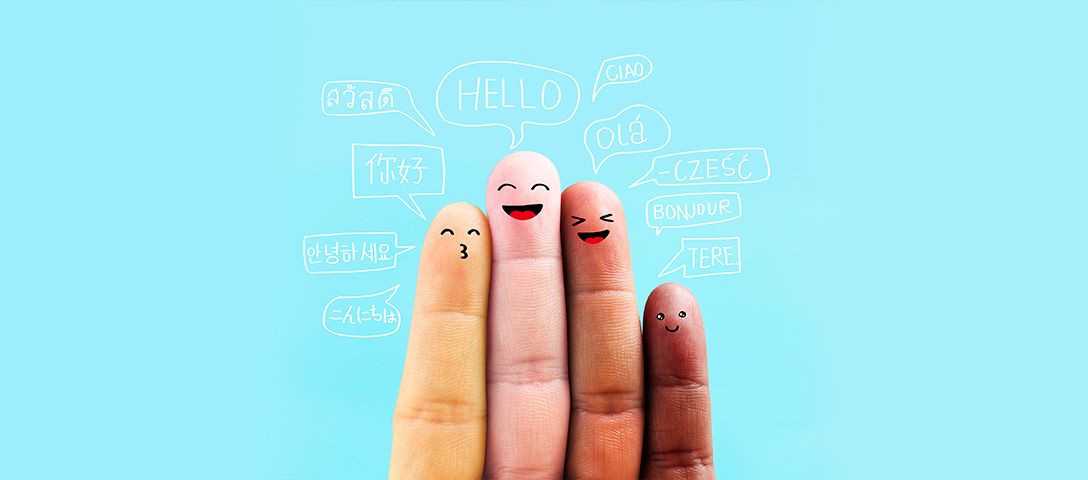"What is World Hello Day?" you'd be asking. It is a notorious secular holiday observed on November 21st, since 1973. Though it may sound incredibly simple, the meaning behind World Hello Day is way deeper than you’d think about. Let’s discover its history and importance and see how it is celebrated.
The History Behind the World Hello Day
Despite the fact that International Hello Day promotes world peace and the importance of communication, the holiday has been marked by a sad and terrifying event. In October of 1973, the fear of a new world war was settled in the hearts of many due to the arising conflict between Egypt and Israel. Named as the Yom Kippur War, the armed conflict took place between the 6th and 25th of October.
Though the war was fought not for a long period of time, many people died. On October 25th, a ceasefire was inflicted to end the conflict between Israel and Egypt, as the intensification of the war almost led to the implication of the two most powerful antagonist parties on the world map of that time, the United States and the Soviet Union. The war has ended on the 25th of October, and it has changed for the better the relationship between the battling states.
The same year, two brothers named Brian and Michael McCormack, one a Ph.D. graduate of Arizona State University, and respectively, the other a graduate of Harvard University, have created the World Hello Day in response to the war that almost triggered a worldwide conflict. To spread the newly born holiday, they mailed 1360 letters to the world leaders, in seven languages, to encourage their participation.
And that’s how World Hello Day was introduced to the public. Throughout the years, the number of people observing it has been growing at a fast pace, nowadays, World Hello Day is celebrated in 180 countries.
How World Hello Day is Observed
Among World Hello Day activities is to greet people. Anyone can participate in it by saying ‘Hi!’ to at least 10 people in their own language or in a foreign one. This action is performed to demonstrate the importance of communication and increase interpersonal relationships inside the society for preserving peace.
On this day, people usually greet each other to express their concern about the conflicts that ignite violence and are solved through guns, fire, and blood, and not through communication. Just by saying ‘Hello’ to someone, you could spread the goodwill and show that you care about the world you are living in.
It is not only about the word “hello,” but it is also about the will to prevent potential conflicts and solve disputes. The holiday can be a reason to unravel disagreements between ordinary people, as well. Those who have people fallen from their lives as the result of a fight that was once significant but now it has lost its meaning, on this day, can step forward and renew the relationship by saying ‘Hello.’
The gesture can make you stronger, as only strong people can find the strength inside them to say ‘Sorry,’ forgive themselves, and ask for forgiveness. It is not about whose mistake it was, it is about the respect you show for others and the importance of them to you.
If you comprehend the value of the relationship between you and the person you want to bring back, then saying hello to someone valuable will be an easy task. Just think about the outcome. A world where everybody values people around them and understands the importance of communication. Though it seems like an unreachable utopia, by greeting at least 10 people of either friends, family, or strangers, you will make the society take a step closer to world peace, or at least will stimulate it to take a look at this problem.
Bonus:
If you want to reach across the world by saying ‘Hello’ to someone in his tongue, you might be needing to know how to do it. To ease this task for you, we gathered a list of 50 languages in which you might want to say ‘Hello.’ Have fun!
- Arabic - Marhaba
- Bavarian and Austrian German - Grüß Gott
- Bengali - Namaskar
- Catalan - Hola
- Chinese - Nǐ hǎo
- Croatian - Dobro Jutro = Good morning; Dobar dan = Good day; Dobra većer = Good evening
- Danish - God dag
- Dutch - Hoi = Hi; Hallo = Hello
- Finnish - hyvää päivää
- French - Bonjour
- Gaeilge - Dia dhuit
- German - Guten tag
- Greek - Yasou
- Hausa - Sannu
- Hebrew - Shalom
- Hindi - Namaste
- Hungarian - Jo napot
- Icelandic - Góðan dag
- Igbo - Nde-ewo
- Indonesian - Selamat siang
- Italian - Ciao
- Japanese - Konnichiwa
- Javanese - Halo
- Korean - Ahn nyong ha se yo
- Latin - Salve
- Lithuanian - Sveiki
- Luxembourgish - Moïen
- Malay - Good Morning: Selamat pagi; Good Afternoon: Selamat tengah hari; Good Afternoon/Evening: Selamat Petang
- Maltese - Bonġu
- Marathi - Namaskār
- Nepali - Namastē
- Norwegian - Hallo
- Persian - Salam
- Polish - Cześć
- Portuguese - Olá
- Punjabi - Sat Shri Akaal
- Romanian - Bună ziua
- Russian - Zdravstvuyte
- Serbian - Zdravo
- Slovak - Ahoj
- Spanish - Hola
- Swahili - Hujambo
- Swedish - Hallå
- Tahitian - Ia orna
- Tamil - Vaṇakkam
- Telugu - Namaskaram
- Thai - Sawasdee
- Turkish - Merhaba
- Urdu - Assalamo aleikum
- Vietnamese - xin chào
Last Updated on November 15, 2019.

